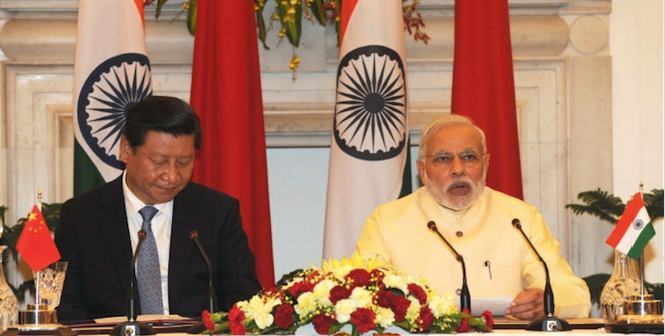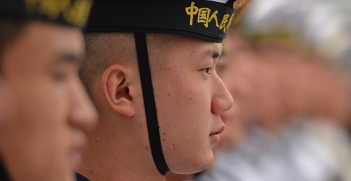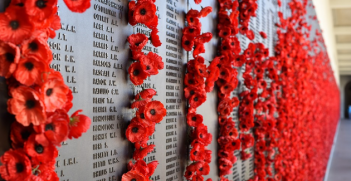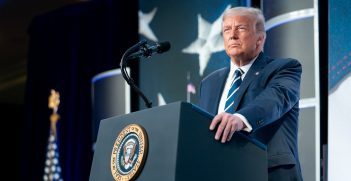China’s and India’s Perspectives on Armed Interventions in Africa and Syria

When both China and India sat on the United Nations Security Council in 2011–12, it deliberated whether to invoke Chapter VII of the UN Charter to endorse military intervention in Africa and the Middle East. China and India demonstrated almost identical voting patterns and acquiesced to the intervention in Côte d’Ivoire, Libya and Mali but balked at an attempt in Syria. Despite their divergent political systems, what was the glue that held them together? Why were they opposed to external intervention in Syria only? Was Libya a game changer for their perception of military intervention?
We contend their behaviour can be explained by an interplay between norms and interests. While norms and material interests are often understood as being in tension with each other, we argue that rational and social factors interact with and penetrate each other in a dialectical relationship in which norms define for actors – China and India here – what constitutes their legitimate interests, empowering them to pursue their interests, and in the pursuit of their interests, the actors are tempted to reinforce or change prevailing norms. Their similar voting patterns at the UN were shaped by four inter-connected norms with regard to (un)justifiable military intervention.
Anti-US hegemonic imperialism
First, China and India share with each other a sui generis national identity of post-colonial, re-emerging powers that are jointly opposed to US liberal imperialism. The Libyan crisis has confirmed their lingering suspicions that the US would use the pretext of humanitarian intervention to make wars for ulterior purposes, and the abstaining states could do little to constrain the scope of intervention. There was an “erroneous” image in China and India of an aggressive, imperialist US wishing to provoke another war in the Middle East. Apparently many specialists in the two countries were unaware of the initiatives of both France and the UK in the UNSC, the conflicts between France and NATO over the leadership of the intervening force and the internal disagreement within the Obama administration about the feasibility of the war.
The shared norm of opposing US hegemonic intervention with a hidden agenda of regime change is, in particular, shaped by a “collective historical trauma” and “post-imperial ideology” as a result of their painful colonization at the hands of Western imperialist powers in the 18th and 19th centuries. This collective identity as the Asian victims of the Western imperialism has empowered them to unite around opposition to any mission-civilisatrice intervention in Syria. By comparison, the US was not convinced of the strategic value of intervening in West Africa, and the French-led intervention was multilateral.
Concern over failed states
For China and India, external intervention would be less offensive if the state in question has no functioning government. Without external intervention, Côte d’Ivoire and Mali would likely fall into civil war. In addition, militias in northern Mali contained terrorists. By contrast, Syria has had a reasonably well-functioning central government.
China has been worried about the negative impact of Syria’s descent into political anarchy and a disruption the regional balance of power on its national security. China claims that links are forged between ISIS and Uyghur extremists in Xinjiang, which has allegedly resorted to escalating violence against the Chinese government since 2008.
Regional initiatives without capacity
The third norm that would justify external intervention is the presence of regional initiatives to resolve regional crises but lack of material means to accomplish the initiatives. The regional organisations of the Arab League, the Gulf Cooperation Council and the Organization of Islamic Cooperation were strongly behind the UNSC resolutions regarding Libya. It was the Arab League that asked the UNSC to impose a no-fly zone over Libya in March 2011. The Economic Community of West African States (ECOWAS) was proactive in taking action against Gbagbo in the Ivorian post-election crisis. Similarly, the crisis in Mali showed that both ECOWAS and the African Union did not have the funding and logistics to accomplish the envisaged initiative.
In contrast, both regional consensus and regional initiatives about intervention in Syria were absent. Lebanon supported the Libya intervention but not the Syria one. The Syrian civil war is perceived as a Sunni Arab attempt to oust the Assad regime whereas Bashar al-Assad is regarded as an Arab nationalistic leader. Lebanon, Yemen, Algeria and the Shiite-led government of Iraq rejected calls for imposing stronger sanctions against the Assad regime.
Political mediation
Believing that peace cannot be made by war, China and India insist on resolving intrastate conflicts by political mediation. Also, after the Libya intervention, they have a growing concern over how R2P’s third pillar would be implemented on the ground.
India, Brazil and South Africa (IBSA) tried in August 2011 to mediate the Syrian intra-state conflict. China also supported the role of the UN as an impartial mediator in the same crisis and participated in both Geneva Conference I and II in 2012 and 2014 respectively. In attending the Geneva II peace talks in January 2014, China put forward the ‘Chinese Way’ (Zhongguo fangshi) to handle hot-spot situations, insisting on non-violent conflict resolution and the primary role of the UN in the process. Before the French intervention in West Africa, global and regional mediations were attempted to resolve the Ivorian and Malian crises. Their failure to avert violence made the military intervention less “imperialist” and less objectionable to China and India.
In sum, whereas there are attempts to explain China’s and India’s shifting policies towards military intervention by focusing narrowly on two countries, Libya and Syria, and the transition in their policy stances, we advance a more comprehensive account that covers Chapter VII-type interventions in Côte d’Ivoire and Mali that happened around the same time. The Libya intervention per se was not a pivotal “game changer”, as these norms have taken shape prior to, during and following the intervention. The behaviour of the two Asian re-emerging powers can be better explained by an intermingling of norms and interests, most importantly: opposition to US liberal imperialism, concerns for state failure, preference for regional initiatives and the desire to use political mediation to resolve civil wars.
Dr Lai-Ha Chan is a senior lecturer in the Faculty of Arts and Social Sciences at the University of Technology, Sydney. Dr Pak K Lee is a senior lecturer in Chinese politics and international relations at the University of Kent in the United Kingdom. This piece is adapted from their article, “China’s and India’s Perspectives on Military Intervention: Why Africa but Not Syria?” published in the Australian Journal of International Affairs.





